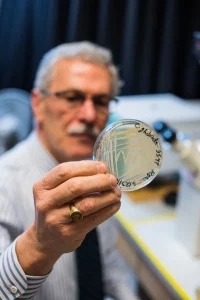
Podcast: Play in new window | Download
Jeff Kessler, FACHE
Allergy Choices
This week I sit down with Jeff Kessler to discuss allergies and sublingual immune therapy.
Jeff Kessler is a business leader and a thought leader in the allergy therapy space. His relevant backstory goes back to 1999 when he had the fortunate opportunity to work on a project to select and implement an Electronic Medical Record system for the Allergy Associates of La Crosse (AAOL) clinic in La Crosse WI. Fortuitously for his daughter who at the time suffered profoundly with allergies, asthma and eczema, this opportunity presented a new course of therapy that would eventually be taken for the entire family leading to allergic disease modification. Enthralled with the therapy and company, Jeff dedicated his career in the healthcare industry from that point on to the allergy treatment approach that he witnessed change thousands of lives including his families. The growing AAOL organization became linked to Allergychoices, an education company dedicated to teaching healthcare providers around the U.S. on the protocol (La Crosse Method – LCM) that had been perfected since 1970. Jeff has served as President of Allergychoices since its formation and its services have grown to help providers deliver immunotherapy using the LCM to their patients directly at the primary care level. Bringing together AAOL, the most advanced allergy immunotherapy clinic in the U.S. and Allergychoices, capable of delivering the benefits of disease modifying allergy immunotherapy to anyone, anywhere, the distinctive competencies of these companies continue to help hundreds of thousands of allergy sufferers of all types, including foods.
Jeff earned a bachelors in science from the University of Wisconsin LaCrosse before he received his MBA in Strategic Planning from University of Minnesota’s Carlson School of Management in 1987.
Please enjoy my conversation with Jeff Kessler,
Dr. M






















